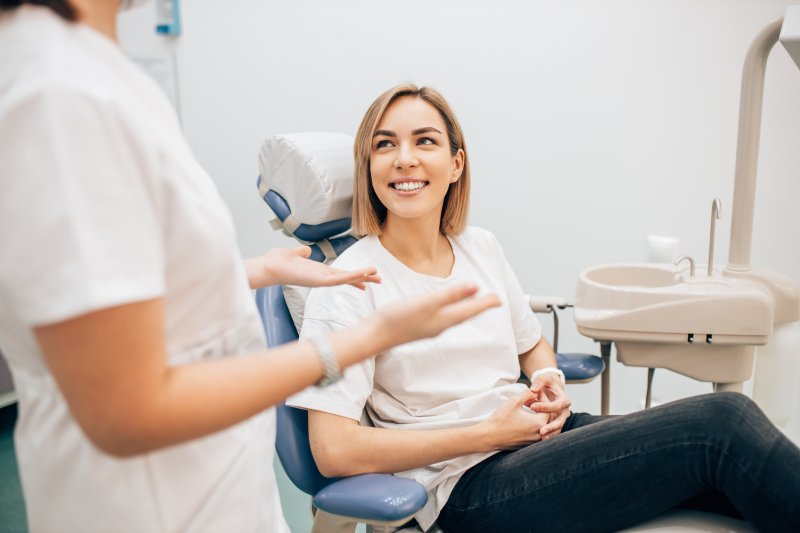
One size fits all. It may work for certain products like rain ponchos, but in so many other areas it doesn’t because not everyone is the same. When it comes to sedation dentistry, although its positive uses are undeniable, not everyone is a good match for this option. Could you not be a good candidate for sedation dentistry? Here are the reasons why you might not benefit from this while you’re in the chair.
You’re Not Afraid or Anxious about Your Dental Visit.
Although sedation dentistry can be used for other situations, its most common purpose is to help those who are anxious or sensitive about dental procedures, the sights and sounds of the dental office, or the instruments used. If you don’t experience this fear or can manage it on your own, you may not need sedation to keep you calm and relaxed during your visit.
Keep in mind that you may still be a candidate for sedation if you have a sensitive gag reflex or if you are receiving complicated or long treatment—even if you aren’t afraid. It just depends on all your needs!
You’re Pregnant.
While pregnant, you must be extra careful about what you put into your body as it could negatively affect your baby. Insufficient research has been conducted on the effects of certain forms of sedation on pregnant patients and their babies, which means it’s safer to simply avoid sedation during gestation. In fact, some dentists postpone dental work in general to protect the mother and baby from potential harm.
You Have Sleep Apnea.
Although most forms of sedation do not put you to sleep, they do tend to slow down your breathing, and sometimes patients can feel relaxed enough to fall asleep during treatment. IV sedation, in particular, is bad for those who have sleep apnea, a condition that interrupts regular breathing during sleep. If you have sleep apnea, make sure you mention this diagnosis in your conversation with your dentist about your medical history.
You Are Allergic to Certain Medications or Taking Medications That Could React Badly with Sedation.
Negative side effects with nitrous oxide are not common, but some people experience nausea afterward. For more intense IV sedation, it’s important to consider your health and medical history. If you are taking any medications or have allergies, you certainly should share this information with your dentist to avoid bad reactions to the sedation medication.
You Have a Stuffy Nose.
Nitrous oxide is administered through a nasal mask, and the gas is inhaled through the nose while the dentist works in your mouth. A stuffy nose can literally stop the nitrous oxide from getting into your system and taking effect.
Ultimately, having an honest, open conversation with your dentist is the best way to tell if you are a good candidate for sedation. They can determine whether it would make your visit more comfortable and stress free or whether you can go without it.
About the Practice
At Washington Dental Associates in Bergenfield, our five dentists proudly offer nitrous oxide and IV sedation for patients who can benefit. Customizing care for each individual, we take all kinds of information into account, including a patient’s feelings, medical history, current medications, and more. If you would like to explore your sedation options for your dental appointments, contact our team online or call our office at 201-453-4863.

